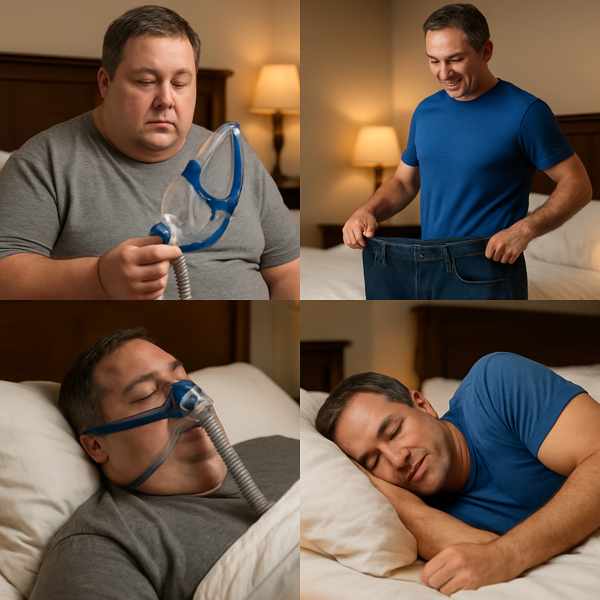Can Weight Loss Naturally Treat Obstructive Sleep Apnea?
Can Weight Loss Naturally Treat Obstructive Sleep Apnea?
Blog Article

One of the most discussed connections to sleep apnea is excess weight — leading many to ask: can weight loss cure sleep apnea?
While not always a complete cure, weight loss often improves symptoms of sleep apnea significantly.
Causes and Symptoms of Sleep Apnea
Sleep apnea occurs when breathing repeatedly stops and starts during sleep.
Common symptoms include:
- Loud snoring
- Interrupted breathing patterns
- Excessive daytime tiredness
- Morning headaches or dry mouth
How Obesity Impacts Breathing
Carrying extra weight, especially around the neck and upper body, can put pressure on the airway during sleep.
Key risk factors include:
- More weight increases OSA risk
- Narrows the airway path
- Can contribute to airway collapse
Is It Possible to Eliminate Symptoms Naturally?
In many cases, losing weight can dramatically reverse read more or manage sleep apnea symptoms.
Possible benefits of weight loss:
- Less airway obstruction
- Better oxygen flow
- Less need for CPAP machines or surgery
- Improved sleep quality and energy
However, weight loss may not cure sleep apnea in all cases — especially if anatomical issues or severe OSA are present.
What Results Can You Expect?
Even modest weight loss can have a big impact.
Tips:
- Focus on progress, not perfection
- Sustainable changes make a difference
- Track your sleep changes
Natural Weight Loss Tips for Better Sleep
Effective strategies:
- Eat a balanced, whole-food diet
- Boosts metabolism and burns fat
- Sleep on your side
- These relax throat muscles and worsen apnea
Working with a nutritionist or sleep specialist can provide more personalized support.
When Weight Loss Isn't Enough
While weight loss is helpful, it may not fully resolve sleep apnea for everyone.
- Keeps airways open at night
- Custom-fitted mouthpieces to reposition jaw and tongue
- To remove excess tissue or reposition structures
Conclusion
So, can weight loss cure sleep apnea? In many cases, it can help manage the condition.
Talk to your healthcare provider, make informed decisions, and take proactive steps toward better health and rest. Report this page